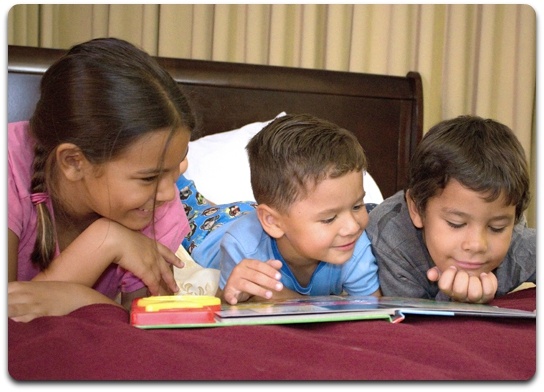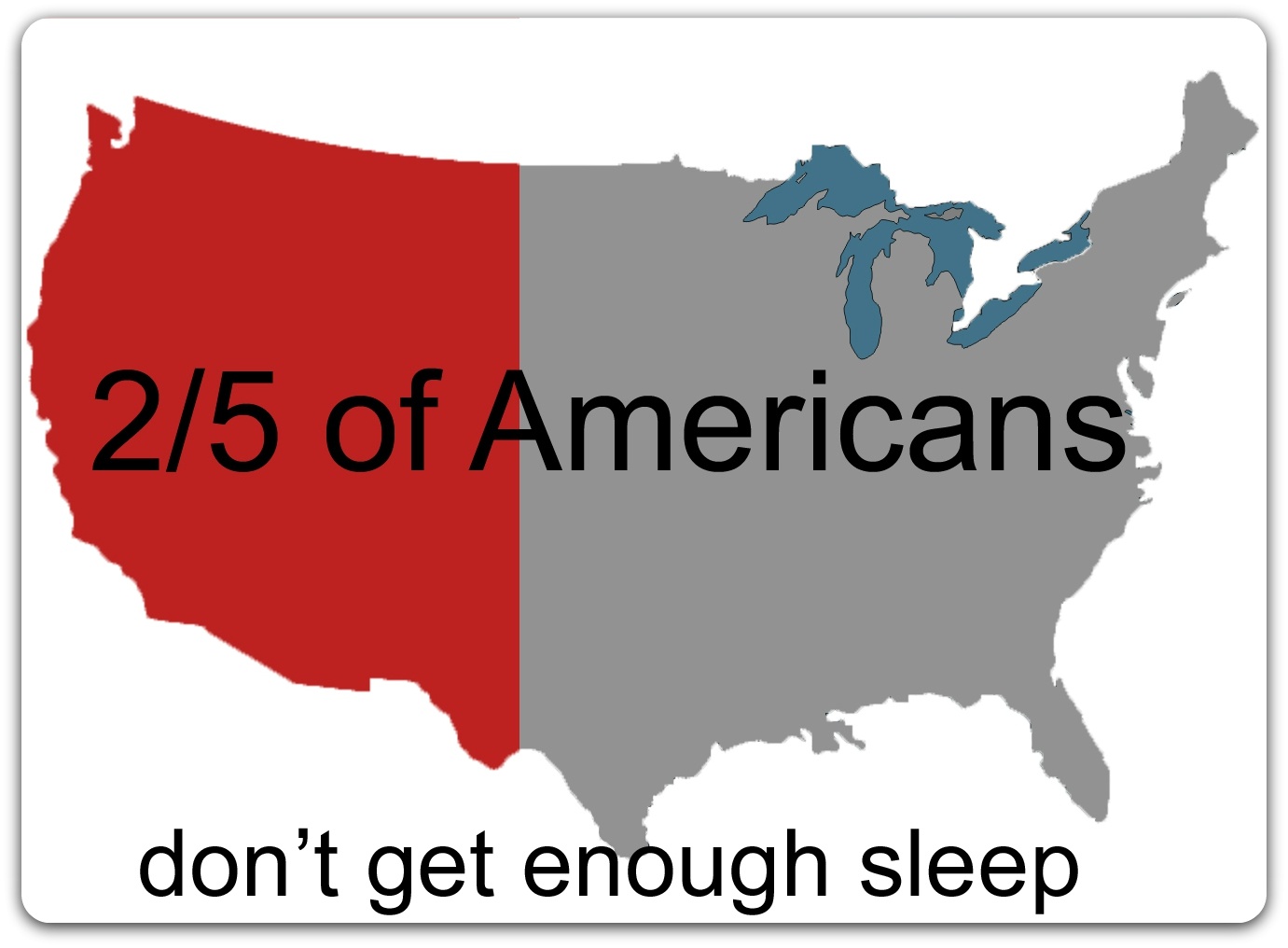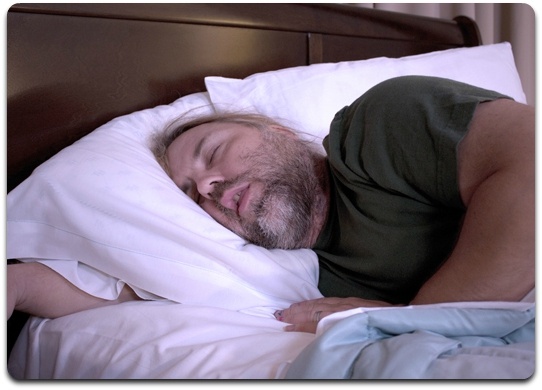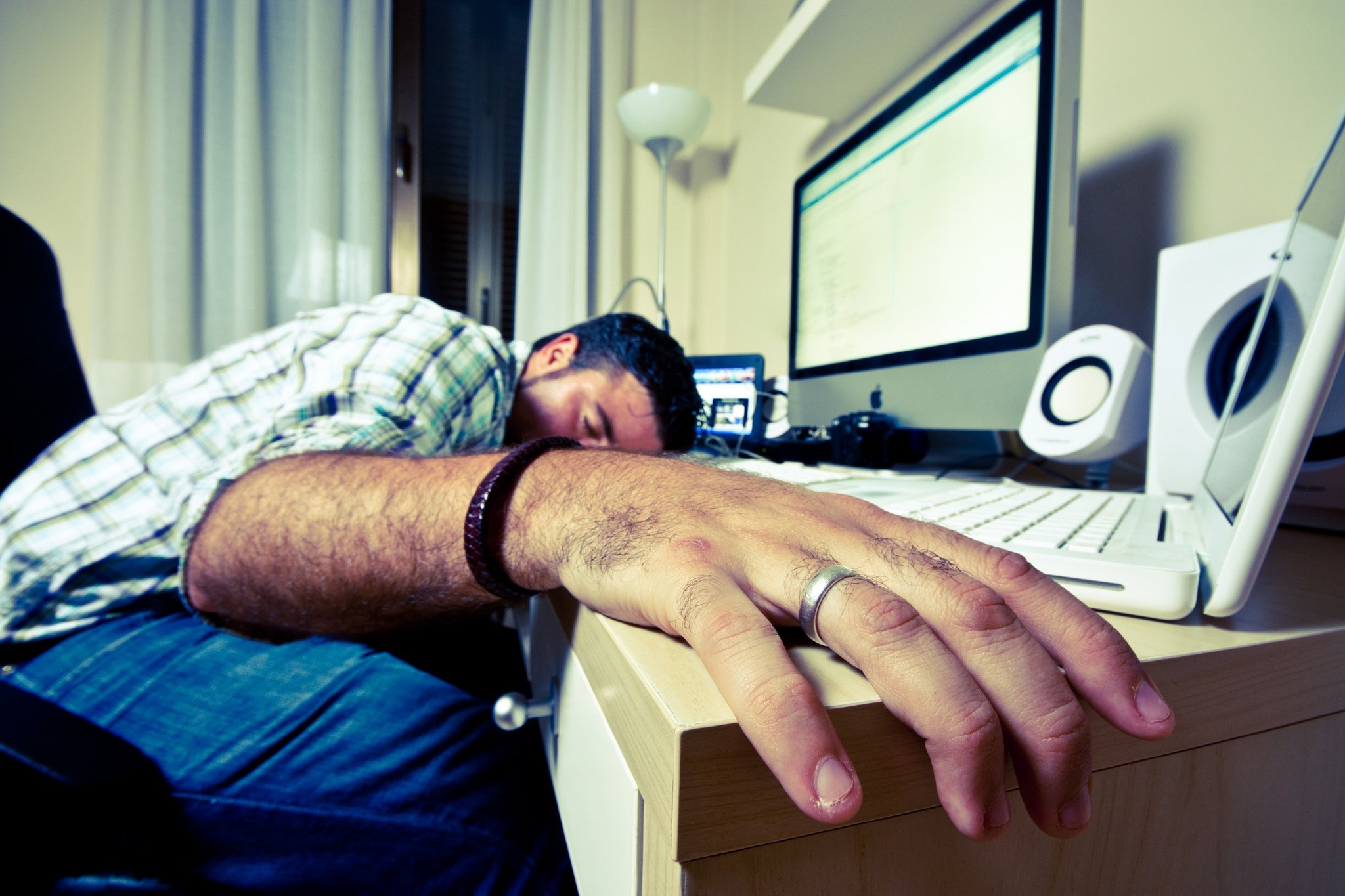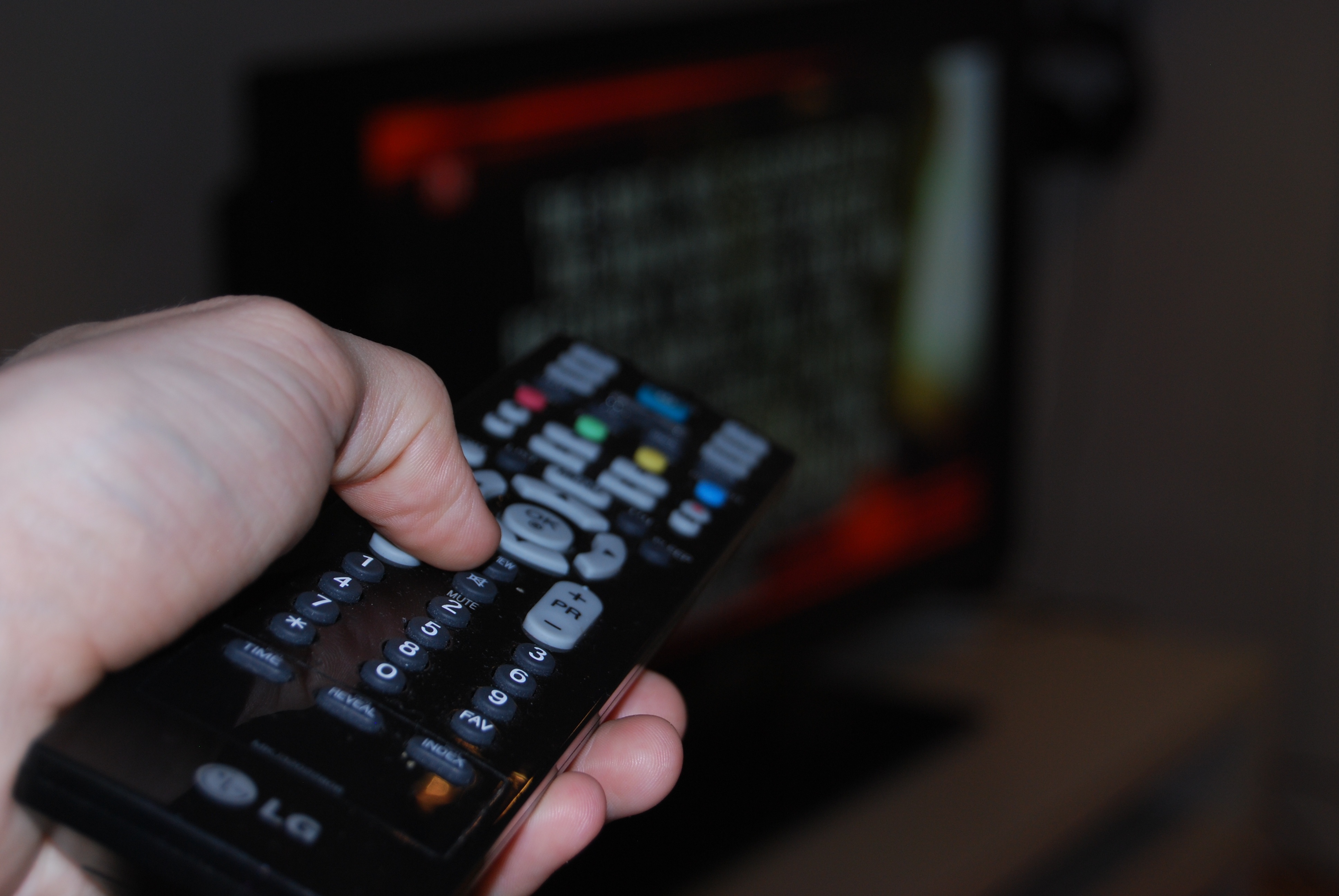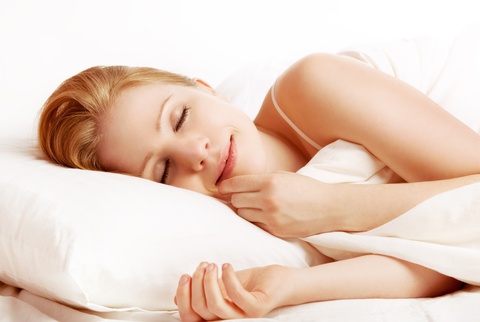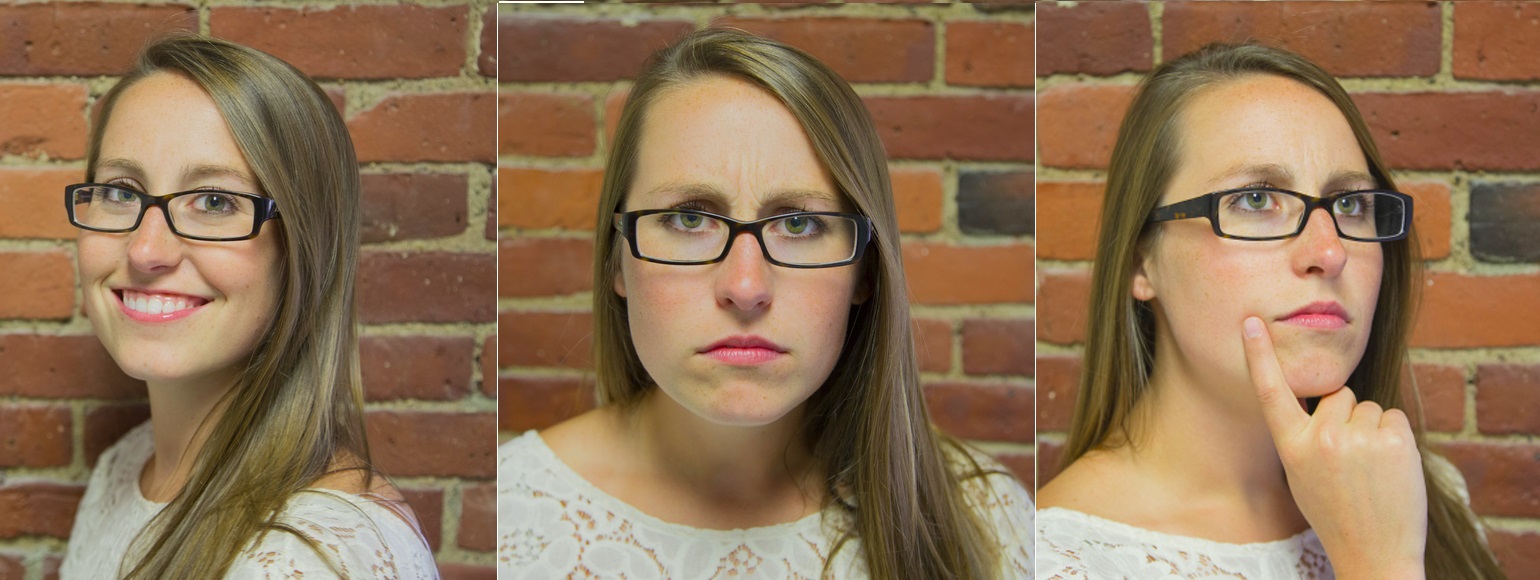Until now, research has suggested that sleeping with your pets is disruptive and should be avoided. A new study released December 2015 finds that sleeping with your pet may help you feel more secure, reduce anxiety and even sleep better!
New Research Shows Sleeping With Pets May Help You Sleep Better
Posted by Julia Steele Rodriguez
Dec 10, 2015 7:00:00 AM
Topics: Good Sleep Habits
Age and Sleep: How our sleep changes from childhood to adulthood
Posted by Julia Steele Rodriguez
Nov 18, 2015 9:00:00 AM
Age and sleep are closely related, and many people will notice a significant decline in the quality of sleep as they grow older. According the Division of Sleep Medicine at Harvard Medical School, sleep patterns change throughout life, and for most of us, the amount of time we spend sleeping each day slowly decreases as we age.
Topics: Good Sleep Habits, Kids and Sleep
It's true that different people need different amounts of sleep. Some people can get by on 7 or even 6 hours per night; others need 9 or 10 to feel optimal. Sometimes, the one-size-fits-all guideline of 8 hours per night just isn't enough to help you determine if you're really as well-rested as you can be. So in this post, our goal is to lay down some rough guidelines for how much sleep is healthy, and how to tell that you need to be catching some more zzzs.
Topics: Good Sleep Habits
The Sleep Loss Epidemic: the huge social, medical, and economic costs of sleep deprivation
Posted by Julia Steele Rodriguez
Sep 12, 2015 8:00:00 AM
Sleep deprivation--a consistent shortage of sleep--is a serious problem in the United States. A Gallup poll taken in 20131 found that 40% of Americans get less than seven hours of sleep per night. That means that two in five Americans is not getting the recommended amount of sleep.
Topics: Sleep Disorders, Good Sleep Habits
Top 3 Sleep Suggestions for Children and Teens
Posted by Julia Steele Rodriguez
Sep 10, 2015 8:00:00 AM
The past week, we have been running a series of blog posts on how sleep affects different groups of people: namely, men and women. But what about the younger sleepers among us?
Healthy sleep may be even more important for children and toddlers than for grown adults. Kids and teens need more sleep (depending on the age, sometimes a lot more sleep) than adults. Plus, at this age, sleep quality and quantity can influence kids' emotional and mental development (for example, toddlers who skip naps are proven to be less happy and engaged than their well-rested counterparts.
So if you're the parent of a kid or teen, here are our top 3 tips about children and sleep.
Topics: Good Sleep Habits, Kids and Sleep
Last week on the Sleep Better, Live Better blog we talked about sleep facts that are particular to women. But what about sleep-related issues that affect men? For instance, men show some slightly different sleep patterns, are at greater risk for certain sleep disorders, and can experience particular side effects as a result of sleep deprivation.
So this week, we're focusing on four must-know facts about men and sleep.
Topics: Good Sleep Habits, Sex and Sleep
Sleep in the Corporate Culture: restricting sleep is bad for employers and employees
Posted by Julia Steele Rodriguez
Aug 27, 2015 8:00:00 AM
The overworked, high-powered employee is a recurring archetype in American culture. The most glorified careers in our society--doctors, lawyers, and investment bankers--are notorious for long hours and not providing enough sleep. Our television stations are full of shows that romanticize the quick-paced and exciting lives of emergency room doctors or criminal lawyers, while entirely downplaying the negative health consequences of such a sleep-deprived lifestyle. Plus, many companies have a culture that demands 110% of their employees, without considering the detriments in terms of efficiency, long-term productivity, and individual health.
That's why today we're taking a look at sleep in our corporate culture and how that culture is affecting working people and America as a whole.
Watching TV in Bed: The Common Habit that Spoils your Sleep
Posted by Julia Steele Rodriguez
Aug 8, 2015 8:00:00 AM
Do you watch TV before going to bed? Odds are, you do. According to the 2011 Sleep in America poll conducted by the National Sleep Foundation1,
- 95% of people use an electronic device within an hour of their bedtime.
- 2/3 of people aged 30-64 and half of people aged 13-29 watch TV within an hour of going to bed almost every night.
Though many people use television as a way to relax before nodding off, falling asleep to your TV can actually be damaging to your sleep quality. Learn why, and how you can catch up on the latest Game of Thrones episodes without compromising your night of sleep.
Topics: Good Sleep Habits
Get your "Beauty Sleep": Sleep Makes you More Attractive
Posted by Julia Steele Rodriguez
Aug 1, 2015 8:00:00 AM
Step 1 in your new beauty routine: hit the sack earlier the night before! Research has proven that a good night's sleep makes you look healthier, happier, and--yes--more attractive. "Beauty Sleep" isn't just a silly cliché--it is backed up by solid evidence.
This is especially important for people who suffer from sleep apnea, because studies have shown that people who use a CPAP machine are rated more attractive than people with untreated sleep apnea!
Topics: Good Sleep Habits, Treating Sleep Apnea, CPAP Treatment, Sex and Sleep
Sleepy and Insensitive: Poor Sleep Lowers your Emotional IQ
Posted by Julia Steele Rodriguez
Jul 25, 2015 8:00:00 AM
It's common knowledge that going for a while without sleep can make you moody and irritable. But a new study proves that grouchiness isn't the extent of the problem. Sleep deprivation doesn't just mess up your emotions; it reduces your ability to assess and react to the emotions of others. In other words, it decreases your emotional intelligence--your EQ.
Topics: Good Sleep Habits, Sleep and Society


